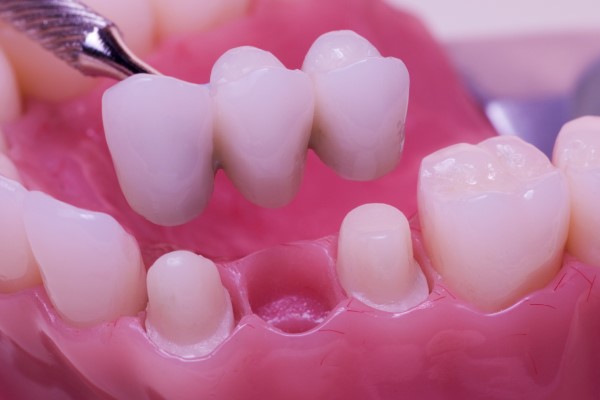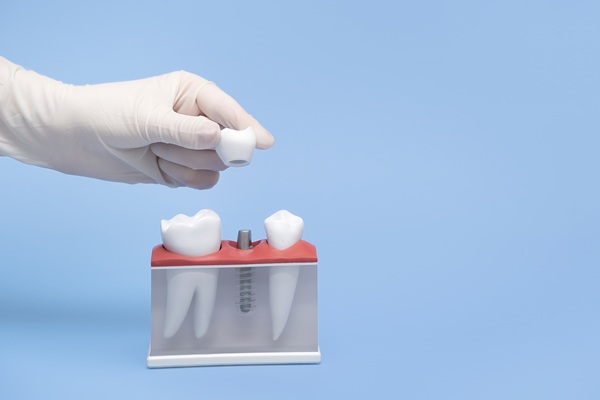Three Tips to Prepare for a Dental Bridge Procedure

Dental bridges allow for the replacement of several teeth with a single prosthetic. As far as restorative dentistry goes, the placement of a dental bridge is a moderately invasive procedure.
There are two main variations to the procedure, and a dentist will choose the one that best serves their patient. Here is what you need to know about the dental bridge and how to prepare for its placement.
Dental bridges, how they work, and their installation
A dental bridge has two main components, namely the artificial teeth (pontics) and the support structure (abutment). The artificial teeth comprise a row of crowns that attach to each other with dental adhesive. The crowns at either end of the bridge are hollow, like the ones dentists use to restore teeth. They form the support structure of the bridge.
A dentist may fit these abutment crowns over the healthy teeth on either side of the gap. They may also choose to install dental implants on each end of the gap. The dentist will then use the implants as supports for the bridge. Here is the process of installing dental bridges, in broad strokes:
- First, the dentist screens their patient for suitability for a dental bridge
- If the patient is a good candidate, the dentist may proceed to remove a layer of enamel from the teeth on either side of the gap. The dentist could oversee the fitting of dental implants instead
- Next, the dentist will request the fabrication of a dental bridge, based on an impression of the patient’s dental arch
- Once the bridge is ready, the dentist will schedule a final appointment with their patient. They will use the session to fit the bridge over the prepared teeth or implants
The whole process takes at least two visits to the dentist. The time and effort that goes into the fitting of a bridge is worth it for the patient who gets their smile restored. Here are steps that help with preparation for the procedures:
1. Provide a full dental history
A patient who wants a dental bridge needs to give their dental records to their dentist. This information helps with diagnosis, screening, and the creation of a treatment plan.
2. Find out about billing, financing, and insurance cover
It is always a good idea to have a complete picture of the time, effort, and money that goes into any dental treatment. Find out what it takes (from start to finish) to get a permanent dental bridge. The patient should find out if the practice offers payment plans, or if the practice accepts certain types of insurance. This information allows the patient to plan ahead.
3. Prepare for anesthetic and sedation
Anesthetic keeps the patient pain-free and comfortable during and after a dental procedure. This makes pain management an integral part of modern dentistry. Patients that get anxious when they enter a dentist’s office are also candidates for sedation dentistry. It is worth noting that pain management drugs could interact with medication that the patient takes. That is why a person that needs a dental bridge should:
- Make relevant medical information available to the dentist
- Request sedation dentistry if they need it
- Ask for advice and instructions that cover after-care and pain management
These measures need to happen as soon as the dentist green-lights their patient for a dental bridge.
Breathe new life into your smile, starting with a phone call
There is nothing like a nice smile to restore the confidence you lose along with your missing teeth. Our practice is here to get you a full and functional set of teeth in a few short visits. Get in touch with us to find out if dental bridges are the solution that finally delivers the smile of your dreams.
Request an appointment here: https://smilesdental.com or call Smiles Dental Care at (650) 563-1180 for an appointment in our Mountain View office.
Check out what others are saying about our dental services on Yelp: Dental Bridges in Mountain View, CA.
Recent Posts
Dental bridges offer a reliable and effective solution for replacing missing teeth. A missing tooth, whether caused by injury, decay, or other dental issues, can impact the health and appearance of your smile. Fortunately, dental bridges can help restore your oral health. Here are five benefits of choosing dental bridges as your tooth replacement option.Dental…
A dental bridge is a popular option for restoring a missing tooth or consecutive missing teeth. This treatment can help bring back your appearance and dental function. It can also relieve dental pain and loosening. Knowing more about this dental appliance can help you prepare for your next appointment. Here are the details that you…
An implant crown is made of strong and safe materials to give the patient a reliable long-term replacement option for missing teeth. If you have questions about the materials used to make an implant crown, this review can help you understand what exactly each component is made of and why dentists use these particular materials.There…
Dental crowns are widely used to restore damaged or weakened teeth, providing durability, strength, and a natural appearance. A dental crown can last many years with proper care, but it may face complications over time, like any dental restoration. Understanding these common issues and how to address them can help patients maintain their crown's health…


